Assistant Professor İdil Gaziulusoy
Designing for Urban Sustainability Transitions
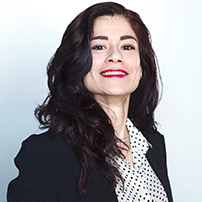
İdil Gaziulusoy is Professor of Sustainable Design and leader of NODUS Sustainable Design Reseach Group at the Department of Design, Aalto University. Professor İdil Gaziulusoy has a background in industrial design (M.Sc.) and sustainability science (Ph.D.) and has research and teaching experience in Turkey, New Zealand, Australia and Finland. Her expertise lies at the intersection of design research, sustainability science and socio-technical-ecological transitions. She is contributing into an emerging area of sustainable design, namely, design for system innovations and transitions, also known as transition design. Before moving to Finland she worked as a researcher in a large consortium aiming to develop visions, scenarios and pathways for transitioning to low-carbon and resilient futures in Australian cities. In this project she researched how emerging technological disruptions and social innovations could facilitate urban transitions and the roles design can play in such processes.
Professor Rohinton Emmanuel
Combining big data, climate change and urban heat island phenomenon to develop smart city planning.
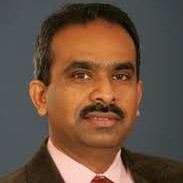 Professor Rohinton Emmanuel is Professor in Sustainable Design and Construction in Glasgow Caledonian University and has over 20 years of University teaching experience in Sri Lanka, Sweden, USA and UK. As an Architect with urban design interests, Rohinton pioneered the inquiry of urban overheating in tropical cities and has taught and consulted on climate, energy and environment sensitive design, building and urban sustainability and its assessment, urban heat islands and energy efficiency.
Professor Rohinton Emmanuel is Professor in Sustainable Design and Construction in Glasgow Caledonian University and has over 20 years of University teaching experience in Sri Lanka, Sweden, USA and UK. As an Architect with urban design interests, Rohinton pioneered the inquiry of urban overheating in tropical cities and has taught and consulted on climate, energy and environment sensitive design, building and urban sustainability and its assessment, urban heat islands and energy efficiency.
Rohinton leads the Sustainable Urban Environment Research Group (SUE-RG) and is an elected member of and Secretary to the Board of the International Association for Urban Climate (IAUC). He is also a member of a World Meteorological Organization Expert Team on Urban and Building Climatology and the Working Group on ‘Climate Change and the Built Environment’ (W108) of the International Council for Buildings (CIB). He had designed LEED certified buildings and has consulted widely in the area of energy efficiency and sustainability in the built environment. Current research includes the development of the next generation of building sustainability assessment systems, natural building materials and processes for energy efficiency in existing buildings and urban heat island measurement in Glasgow, funded by UK and EU funding bodies.
Professor Dr Stephan Pflugmacher Lima
Research on how Applied Ecotoxicology can support smart city planning
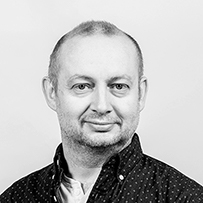 Professor Dr. Stephan Pflugmacher Lima is Professor for Aquatic Ecotoxicology in an Urban Environment at the University of Helsinki, Faculty of Biological and Environmental Sciences and head of the Joint Laboratory of Applied Ecotoxicology at the Korean Institute of Science & Technology Europe situated in Saarbruecken Germany. He has started teaching Ecotoxicology from 1996 on at the Humboldt University of Berlin, the Charite and as Chair of the Department Ecological Impact Research & Ecotoxicology at the Technical University of Berlin, as well as in Brasil, Argentina, South Africa and South Korea. As an Ecotoxicologist he aware of the impact of chemical substances on our environment and got especially interested in how cities are influencing our aquatic ecosystems and how Applied Ecotoxicology could contribute in the sustainability of cities.
Professor Dr. Stephan Pflugmacher Lima is Professor for Aquatic Ecotoxicology in an Urban Environment at the University of Helsinki, Faculty of Biological and Environmental Sciences and head of the Joint Laboratory of Applied Ecotoxicology at the Korean Institute of Science & Technology Europe situated in Saarbruecken Germany. He has started teaching Ecotoxicology from 1996 on at the Humboldt University of Berlin, the Charite and as Chair of the Department Ecological Impact Research & Ecotoxicology at the Technical University of Berlin, as well as in Brasil, Argentina, South Africa and South Korea. As an Ecotoxicologist he aware of the impact of chemical substances on our environment and got especially interested in how cities are influencing our aquatic ecosystems and how Applied Ecotoxicology could contribute in the sustainability of cities.
He invented the so-called “Green Liver Systems”, using aquatic plants in a sustainable way to clean water and air for different purposes. He is member of a german/finnish team studying possibilities for the development of a “Safe Urban Farming” concept. Current research includes the application of Applied Ecotoxicology methods in the development of concrete add-mixtures to make building more eco-friendly and sustainable, as well as possibilities to remove excessive amounts of nutrients, contributing to the formation of potential toxic cyanobacterial blooms, as well as pharmaceuticals from freshwater and marine water bodies.
Johan Merlevede
Leuven MindGate: a triple helix approach to become a thriving smart health city
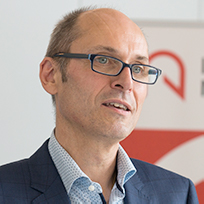
Johan Merlevede is the Managing Director of the Leuven MindGate organisation. Leuven MindGate is a joint initiative of different partners of the ecosystem of Leuven, situated near Brussels in Belgium. Leuven MindGate bundles the forces of companies, knowledge institutes and local government to fuel the economic and societal development of the region, with high tech, health and creativity as pillars. One of the important programs aims to convert Leuven into a
Get to know Johan Merlevede, Smart Cities in Smart Regions 2018 Keynote
Kari Herlevi
Circular economy as key driver for cities and regions
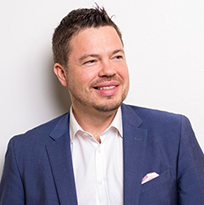
Kari Herlevi is a versatile multi-talent in the field of circular economy. He is currently leading the circular economy area at Sitra, the Finnish Innovation Fund. Previously responsible for the Resource efficient economy area in Tekes, the Finnish Funding Agency for Innovation, he managed the Green Growth – Towards a sustainable future - programme, which aimed to identify potential new growth areas for the sustainable economy business. Previously Kari led the Vigo accelerator programme at Tekes and supported Tekes management. Kari has also worked in the Tekes Silicon Valley office for a few years and his special interests are circular economy, fast growing cleantech firms and developing countries like BRIC.
Kari has master’s degrees in finance and political sciences.
Get to know Kari Herlevi, Smart Cities in Smart Regions 2018 keynote